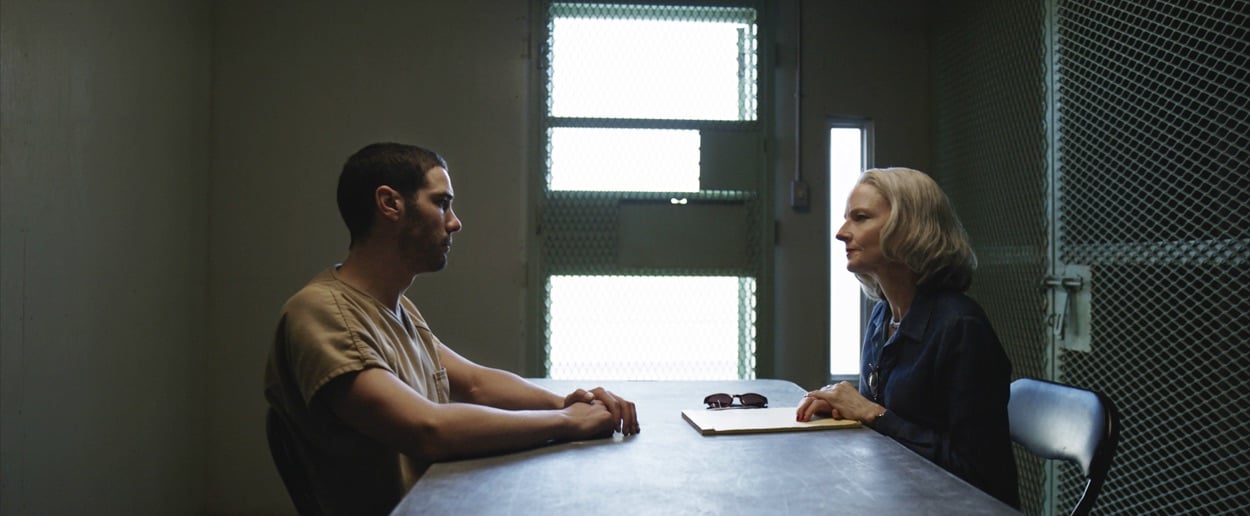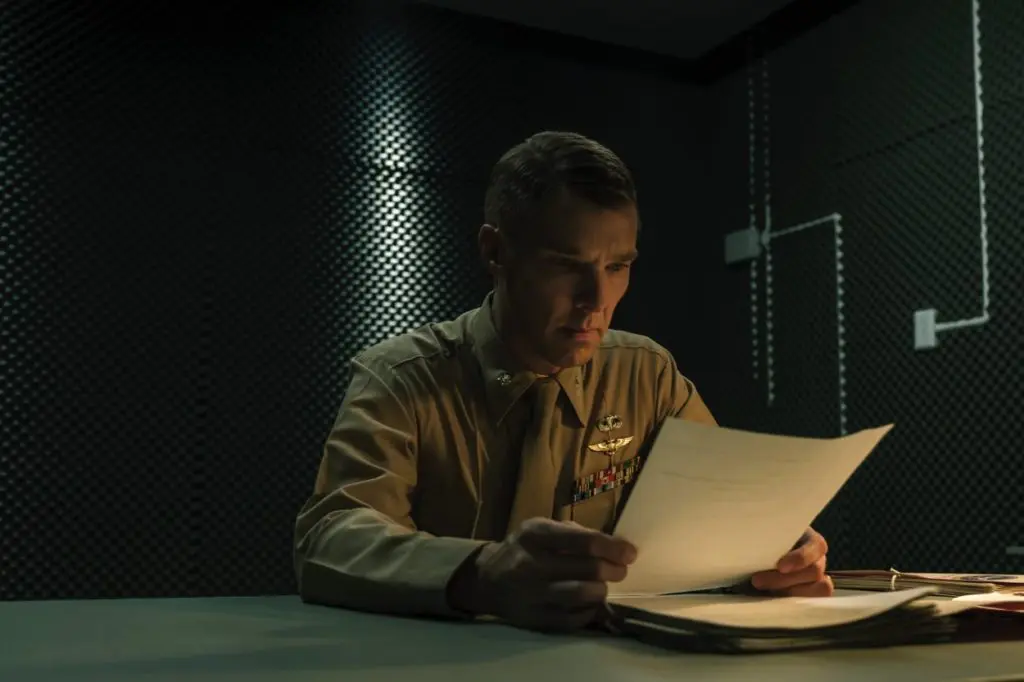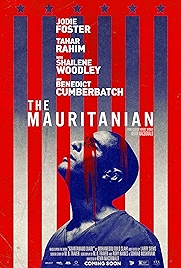The man at the centre of The Mauritanian, Mohamedou Ould Slahi, is a real person. Wikipedia spells his last name Salahi but its facts otherwise agree pretty closely with Kevin Macdonald’s film – picked up in Mauritania, extraordinary rendition to Guantanamo Bay, where he was held for years, suspected of being Al Qaeda’s chief recruiter.
Was he? Macdonald earned his stripes making documentaries and went big time with Touching the Void. Since then he’s had his biggest successes with films cleaving close to the factual (The Last King of Scotland, about Uganda tyrant Idi Amin), while the more overtly fictional The Eagle (Roman legions in Scotland) and Black Sea (submarine jeopardy) caused less overall excitement. The Mauritanian wants to have its cake and eat it – to be factually true yet dramatically intense – and does it by playing peekaboo with Slahi’s guilt or innocence.
Early on, Macdonald shows us Slahi deleting all the contacts on his phone. A later revelation – that he’d taken a call from Osama Bin Laden’s satellite phone – also seems to point the finger. This last in particular could easily have been cleared up in a flashback (there are plenty), but Macdonald leaves things vague. Suspicions are allowed to grow.
I’m getting ahead of myself. Slahi in Gitmo being questioned about his past activities. The prosecution got in to ensure he goes to death row is headed by buttoned-down establishemnt guy Stuart Couch (Benedict Cumberbatch), one of whose friends was flying one of the planes that powered into the Twin Towers. Ranged against him is doughty unsmiling defender Nancy Hollander, an activist lawyer professional to her cuticles assisted by slightly gosh-wow rookie Teri Duncan (Shailene Woodley).
Hollander’s “defence” of Slahi isn’t a defence of him at all but of a principle. It’s essentially a call to the US government to put up or shut up – charge Slahi or let him go – using the most basic legal principle of all, Habeas Corpus.
From here there’s a good slab of very familiar material – Hollander petitioning the authorities for its evidence, the authorities responding either with pages of material so redacted as to be useless, or attempting to swamp the defence with boxes of papers which can only be read by her and Duncan and only in this one secure room, an impossible task.
Crouch, meanwhile, is ploughing his own furrow. And while Hollander’s takes her away from abstract involvment in the case into a more personal interest, Crouch’s takes him in the opposite direction – from hot emotion to a much cooler appraisal of what’s going on at a legal level. The liberal Hollander’s story is the more obviously glorious and crusading, but Crouch’s story is also important and interesting and he is in many respects the hero of this tale, especially after he visits Gitmo to find out first hand what goes on there.
Crouch, Hollander, Duncan – these briskly written characters are tight, bright people with no time for messing around. Cumberbatch (voice slung slow), Foster and Woodley respond by playing them as written, crisply. Their interactions together are fascinating to watch. Macdonald has clearly picked up a thing or two from the walkie-talkie-ness of Aaron Sorkin’s dramas (from A Few Good Men to The Social Network).
Slahi, on the other hand, in the hands of Tahar Rahim, is expansive, warm, engaging, personable, a presence whose charm, and Rahim’s skills, are used to keep the glimmer of a suspicion alive. “The Forest Gump of Al Qaeda” as one interogator puts it? Still a possibility.
If you know Slahi’s story then some of Macdonald’s dramatic crescendoes just won’t work – I didn’t, so they did. More generally, The Mauritanian tells a story that’s no surprise – man arrested on no charge, held for years, confession extracted by water-boarding, sexual humiliation, sleep-deprivation, heavy metal, stress-positions and the full Rumsfeld-sanctioned bag of tricks.
Out of 749 detentions at Guantanamo Bay there have been only seven convictions. While putting a human face on one of those stories, the familiarity of what happens to Slahi, who remains opaque to the end, robs this politically important film of some of its dramatic power.
The Mauritanian – Watch it/buy it at Amazon
I am an Amazon affiliate
© Steve Morrissey 2021


